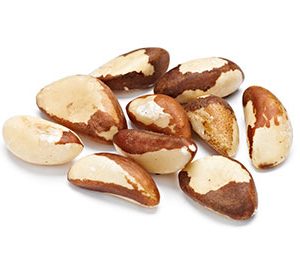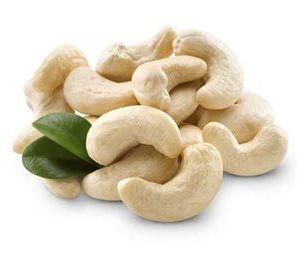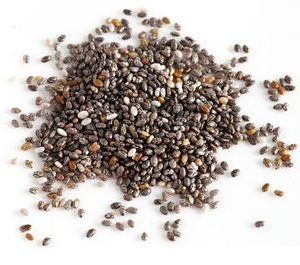Crunchy, healthy and satisfying — almonds are bite-sized treats that are beneficial for health, which is why they’ve been popular for centuries in different parts of the world.
In fact, according to the United States Department of Agriculture (USDA), the annual demand for almonds in America has increased by a whopping 400 percent since 1980.1
Almonds are quite versatile too, since they can be eaten in a variety of ways — from raw or roasted to sweetened or salted. But which variety of almond is actually the healthiest to munch on? Before you indulge on a handful of this crunchy snack, there are several little-known facts that you should know about almonds first.
What Are Almonds?
Almonds are among the most popular nuts in America. But did you know that they’re not considered true nuts at all? The almond “nut” that you know of is actually a seed that’s encased within the hard-shelled fruit of the almond tree.2
Almonds belong to the Prunus family, along with other famous edible fruits like apricots, cherries, plums, peaches and nectarines. It has a scientific name of Prunus dulcis and is native to the Middle East and South Asia, North Africa and Southern Europe.3,4 Almond trees were brought to California during the 1700s by Franciscan missionaries from Spain.5 Today, California is not just the sole state in America that produces almonds commercially, but it’s where 80 percent of world’s almonds come from.6
Because of this, people who live in California have a higher chance of finding real raw almonds, which are a lot more beneficial than pasteurized ones. Pasteurized almonds usually undergo the following processing methods that may affect their nutritional value:
- Oil roasting, dry roasting or blanching
- Steam processing
- Propylene Oxide (PPO) treatment
Unfortunately, almonds that have undergone these damaging pasteurization methods can still be labeled as “raw.” In order to get all the health benefits that almonds have to offer, make sure that you purchase truly raw ones from trusted sources that do not employ pasteurization techniques.
Health Benefits That You Can Get From Almonds
There’s a wide array of health benefits that you can gain from adding almonds into your diet, some of which include:
| Helps regulate cholesterol levels
Several studies have shown that consuming almonds not only helps reduce the levels of bad cholesterol in your body, but also prevents it from becoming oxidized, which may help lower your risk of heart disease.7,8,9 |
Helps improve heart health
Aside from regulating the bad cholesterol in your body, almonds may also help promote better heart health by increasing the amount of antioxidants in the bloodstream and improving your blood flow.10 |
| Helps reduce the risk of breast cancer
According to a study published in the Journal of Gynecologic and Obstetric Investigation, high consumption of almonds may help reduce the risk of breast cancer by two to three times.11 |
Helps regulate blood sugar levels
Almonds are an excellent source of magnesium, a mineral that’s commonly deficient in people with Type 2 diabetes. Researchers found that increasing the body’s magnesium levels may help improve insulin resistance in diabetics.12 |
| Aids in weight loss
Almonds are low in carbohydrates but high in fiber and protein, which may help increase satiety and lower your calorie intake. Studies also show that almonds may help improve metabolism,13 reduce waist circumference and decrease body fat.14 |
Helps promote gastrointestinal health
Since almonds are an excellent source of fiber, they may be useful for improving digestive function and promoting regular bowel movement.15 Almonds also have a prebiotic effect, which may help stimulate the growth of healthy bacteria in your gut.16 |
Other Valuable Uses of Almonds for Your Well-Being
In addition to the benefits mentioned above, almonds also provide significant amount of nutrients even in small servings, making them an ideal food for your overall well-being. Here are some of the vitamins and minerals in almonds and their uses for your health:17
| Vitamin E
An ounce of almonds provides 37 percent of your recommended dietary allowance (RDA) for vitamin E, which is a fat-soluble antioxidant that may help protect your cells against free radical damage. |
Magnesium
A 1-ounce serving of almonds delivers 19 percent of your daily recommended intake for magnesium, which plays a crucial role in your body’s detoxification process. Magnesium is also necessary for proper muscle and nerve function, digestion and energy production. |
| Potassium
Almonds contain high amounts of potassium, which helps balance the electrical and chemical processes in your body. This mineral also helps promote proper muscle contraction, regulate body fluid, transmit nerve impulses and lower blood sugar and blood pressure levels. |
Calcium
Almonds are also an excellent source of calcium, which may help strengthen your bones and teeth and avoid bone-related disorders like osteoporosis.18 |
| Manganese
One ounce of almonds contains 32 percent of your RDA for manganese, a trace mineral that’s essential for promoting proper tissue and bone formation, carbohydrate metabolism, calcium absorption and blood sugar regulation.19 |
Selenium
Almonds are also a good source of selenium, which may help boost your immune system and fight chronic diseases with its antioxidant effects. This mineral may also help support thyroid function, prevent childhood asthma and improve male fertility. |
Almond Nutrition Facts
A handful of almonds provides high amounts of healthy fats, fiber and protein, all of which are important for various physiological functions in your body. Almonds are rich in antioxidants as well, including phenols, flavonoids and phenolic acids. In fact, an ounce of almonds has the same amount of polyphenols as a cup of green tea or steamed broccoli.
Almonds are also relatively low in carbs. A 1-ounce serving of it only has 2.5 grams digestible carbohydrates and 161 calories. If you want to learn more about the full nutritional value of this food, take a look at the nutrition facts table below:22
| Raw Almonds – Raw Almonds
Serving Size: 28 grams |
||
| Amt. Per Serving |
% Daily Value* |
|
| Calories | 161 | |
| Calories from Fat | ||
| Total Fat | 14 g | |
| Saturated Fat | 1 g | |
| Trans Fat | 0 g | |
| Cholesterol | 0 mg | |
| Sodium | 146 mg | |
| Total Carbohydrates | 6 g | |
| Dietary Fiber | 4 g | |
| Sugar | 1 g | |
| Protein | 6 g | |
| Vitamin A | 0% | |
| Calcium | 6% | |
*Percent Daily Values are based on a 2,000 calorie diet. Your daily values may be higher or lower depending on your calorie needs.
Keep Your Protein Levels in Check: Consume Almonds in Moderation
As mentioned above, almonds are high in protein. While this nutrient is essential for your muscles, bones, enzymes and hormones, consuming too much of it can also bad for your health. Keep in mind that your daily protein requirement is equivalent to one-half gram per pound of your lean body mass. Going above this limit may put you at risk of high glucose levels, weight gain, kidney problems and a deficiency in bone minerals.
With that said, make sure that you don’t overindulge on almonds. If you’re looking for nuts that are lower in protein but still high in healthy fats and other nutrients, then you should try macadamia nuts, pecans and walnuts.
Frequently Asked Questions (FAQs) About Almonds
Q: Are almonds good for you?
- Yes, almonds are good for your health if consumed raw and in moderate amounts.
- Where do almonds come from?
- Almonds come from the hard-shelled fruits of the almond tree, which belongs to the prunus family, along with peaches, nectarines and plums.23
- How do almonds grow?
- Almond trees grow best in full sun, preferably in a location where the climate is hot. The almond fruits have a similar texture and appearance as peaches, and they usually take 180 to 240 days before maturing. Once the fruits have matured, their hulls split open to reveal the seed inside, which is commonly known as the almond nut. You can harvest the almond nut by simply shaking the tree and separating the hulls from the seed.24,25
- Are almonds healthy?
- Yes, almonds are healthy, since they are low in calories but rich in healthy fats, fiber and antioxidants. They also contain high amounts of vitamins and minerals, including vitamin E, magnesium, manganese and more.26
- What are almonds good for?
- Almonds may help protect your cells against free radicals, regulate your blood sugar levels, lower your blood pressure, prevent harmful oxidation of bad cholesterol, support weight loss and improve your digestive process, among others.27
- How many calories are in almonds?
- A 1-ounce serving of almonds provides 161 calories.28
- Can dogs eat almonds?
- While almonds are not toxic to dogs, they’re not entirely safe either. Keep in mind that dogs cannot digest almonds properly. This may lead to gastrointestinal distress, which causes a variety of uncomfortable symptoms such as vomiting, diarrhea, lethargy and loss of appetite.
Almonds may also cause obstruction in your pet’s esophagus, intestines or windpipes — this is a life-threatening problem if not addressed immediately. To avoid these health risks, it’s best to avoid feeding your dog with almonds.29






Reviews
There are no reviews yet.